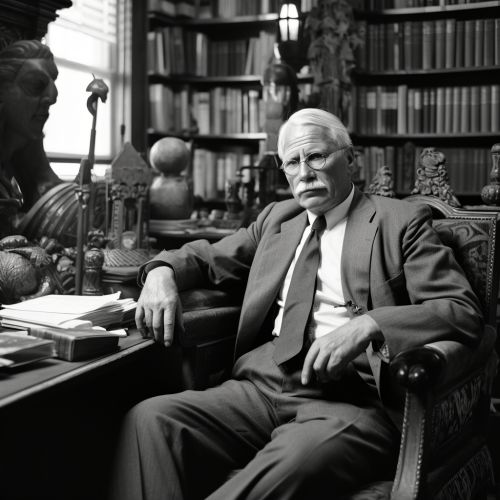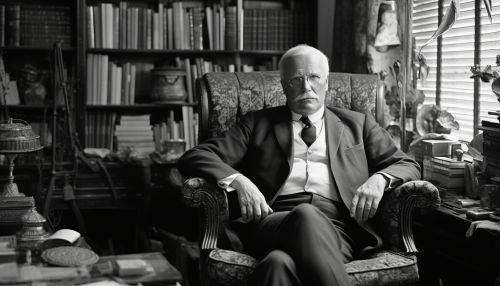Carl Jung
Early Life
Carl Gustav Jung was born on July 26, 1875, in Kesswil, Switzerland. He was the fourth but only surviving child of Paul Achilles Jung and Emilie Preiswerk. His father was a rural pastor in the Swiss Reformed Church, while his mother came from a wealthy Swiss family. Jung's early life was marked by the complex dynamics of his parents' relationship and the influence of their religious beliefs.
Education
Jung studied medicine at the University of Basel from 1895 to 1900. During his studies, he developed an interest in spiritual phenomena, which would later form the basis of his theories on the collective unconscious and archetypes. After graduating, he worked as an assistant at the Burghölzli Psychiatric Clinic in Zurich under the direction of Eugen Bleuler, a pioneer in the field of schizophrenia research.
Career
Jung's career began in earnest at the Burghölzli Psychiatric Clinic, where he conducted research on schizophrenia and word association. His work caught the attention of Sigmund Freud, the founder of psychoanalysis. The two men began a professional relationship that would have a significant impact on the development of psychoanalysis.
In 1907, Jung visited Freud in Vienna and the two men engaged in a marathon discussion that lasted for thirteen hours. This meeting marked the beginning of a close friendship and collaboration that lasted for six years. During this time, Jung was considered the heir apparent to the psychoanalytic movement.
However, their relationship began to deteriorate due to theoretical disagreements. Jung's interest in the spiritual and mystical aspects of the psyche was at odds with Freud's focus on sexuality. In 1912, Jung published "Psychology of the Unconscious", which marked a clear departure from Freud's theories. This led to a final break between the two men in 1913.
After the split with Freud, Jung underwent a period of self-analysis that he described as a "confrontation with the unconscious". During this time, he developed key components of his analytic psychology.
Jung's work included the concept of the collective unconscious, which is a layer of unconscious thought that has been inherited from our ancestors and contains archetypes. He also introduced the concepts of extraversion and introversion, and the four psychological functions of thinking, feeling, sensation, and intuition.
Jung's theories have had a profound impact on psychology, influencing not only the field of psychoanalysis but also inspiring the creation of the Myers-Briggs Type Indicator, a popular personality test.
Personal Life
Jung married Emma Rauschenbach in 1903. The couple had five children and remained married until Emma's death in 1955. Despite his marriage, Jung had several extramarital relationships, most notably with Sabina Spielrein and Toni Wolff. These relationships had a significant influence on his work.
Jung was also known for his interest in and exploration of Eastern philosophies, the occult, and mythology. He believed that these areas of study provided valuable insights into the human psyche.
Death and Legacy
Jung died on June 6, 1961, in Küsnacht, Switzerland. His work continues to be influential in the fields of psychiatry, anthropology, archaeology, literature, philosophy, and religious studies. Despite his controversial ideas and practices, his contributions to psychology have made him a seminal figure in the field.


